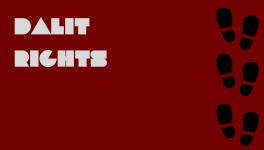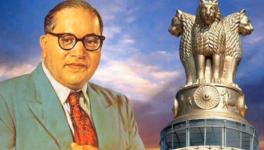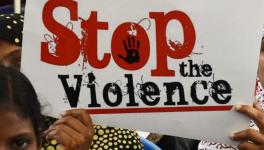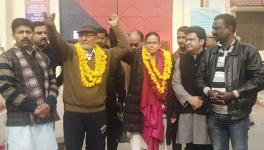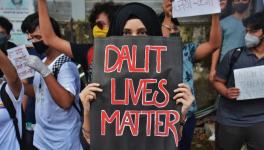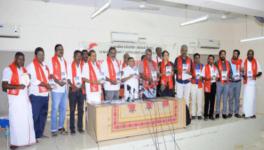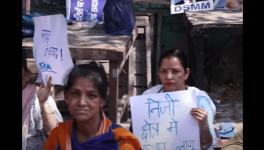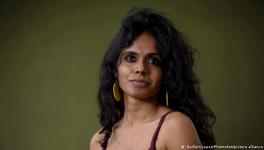Supreme Court, Caste Denial and Religion-Neutral Rights
On 1 October 2019, the Supreme Court recalled its March 2018 order in Dr Subhash Kashinath Mahajan vs State of Maharashtra, in which the Supreme Court had issued guidelines that severely diluted the provisions of the Scheduled Castes and Scheduled Tribes (Prevention of Atrocities) Act, 1989.
In Subhash Kashinath, the Supreme Court had expressed the concern that “...working of the Atrocities Act should not result in perpetuating casteism...” Based on this premise, the court issued mandatory guidelines to the effect that there can be no arrest of a public servant accused of committing an atrocity without the approval of the Appointing Authority and of a non-public servant without the approval of the SSP.
The court also ordered that a preliminary inquiry be conducted by the DSP concerned before registering an FIR under the Atrocities Act. With respect to anticipatory bail, which is expressly barred by section 18 of the Act, the court held that there is no absolute bar against granting anticipatory bail “if no prima facie case is made out or where on judicial scrutiny the complaint is found to be prima facie mala fide”.
This order of the Supreme Court was an affront to the very purpose of the Atrocities Act and frustrated the strictly-worded provisions meant to ensure that the all-pervading caste power equation between the complainants and the offenders did not come in the way of justice. The order was also widely viewed, including by the Supreme Court itself in its 1 October order, as being mistrustful of those who belong to scheduled castes and scheduled tribes and was met with spontaneous and aggressive opposition all over the country.
The central government, under immense political pressure, immediately requested the Supreme Court to review its order, and went on to introduce section 18A in the Atrocity Act to undo the deleterious and pernicious effect of the order in Subhash Kashinath. Section 18A, among other things, reiterated in even stricter terms than section 18 the legal position that anticipatory bail could not be granted to those accused of committing an atrocity, “irrespective of any court order”.
Review Petition and Recall:
In the 1 October order, the Supreme Court purportedly corrected its mistakes and reinstated the safeguard provisions of the Atrocities Act. It recalled the 2018 order to the effect that no preliminary inquiry would be required before registering an FIR and no prior permission would be needed before the arrest of any person accused of having committed any atrocity or hate crime listed under the act. However, the court refused to adhere to section 18 and the newly-introduced section 18A which puts an express and absolute bar on anticipatory bail.
In this order, the Supreme Court restates its position that anticipatory bail can indeed be granted “where no prima facie case is made out” while, interestingly, it also acknowledges the fact that such hurdles along with other ground realities impede the effective implementation of the act.
A Continuing Denial:
In August 2019, the Supreme Court dismissed at least two Special Leave Petitions which were filed against High Court orders granting anticipatory bail to persons charged under the Atrocity Act. During the arguments in one of these matters, the court questioned whether there was really any caste angle to the sexual harassment and death threats meted out to the woman complainant. It was another thing that the court downplayed the facts of the case and suggested that the accused honking his scooter’s horn, at the complainant, on the road could not amount to sexual harassment and that the death threats had been going on for three years, and that there must be some “expiry date” to such threats.
The trial court, in these matters, had found a prima facie case against the accused, including charges under the Atrocities Act. Before the High Court, the investigating officer had opposed granting anticipatory bail to the accused and a charge-sheet had also been filed. All this makes it clear that there was very much a prima facie case against the accused. In spite of all this, the Supreme Court did not see reason to interfere with the High Court’s order granting anticipatory bail.
In addition to blatantly violating sections 18 and 18A of the Atrocities Act, the dismissal of the Special Leave Petitions and the acquiescence with the High Court’s orders are linked to the Supreme Court’s long-standing denial of the existence of caste, or at any rate of the omnipresent role played by caste in the various forms of oppression and social exclusion.
In Ganpat vs Returning Officer (1975), the Supreme Court noted that “Hinduism is so tolerant and Hindu religious practices so varied and eclectic that one would find it difficult to say whether one is practising or professing Hindu religion or not.” While this may seem as a harmless observation on Hindu/Brahmanical practices, what followed was an unabashed denial of caste and caste-based atrocities in Hindu and Indian Society. The Supreme Court observed: “Fortunately things are changing. In cities and bigger towns it [caste] can be said to have almost disappeared. One rarely knows whether the other person he meets is or is not a member of the scheduled castes and no one bothers about it these days. The oppression which we read of sometimes in newspapers of the scheduled castes by the higher castes in villages are really manifestation of the conflict between agricultural labour or the agricultural serfs, as the members of the scheduled castes mostly are, on the one side and the land-holding class on the other. It is wrong to describe them as oppression of the scheduled castes by the higher castes.”
In Court: Caste as a Relic of the Past:
Such relegating of caste to older times or far-off or remote rural places and dismissal of caste violence as solely and simply an economic conflict is as clear a defence of the Hindu caste system as there can be. In many other countries, the denial of genocide, or as is the case in many European countries the denying the Holocaust ever took place would be a criminal offence by and of itself. But in India, no less than the Supreme Court came to the forefront of denying the role of caste in what is clearly caste-based discrimination and caste-based violence. This erases and attempts to whitewash the violent and all-pervasive role of caste as the primary fault-line of the subcontinent.
In other ways also, the Supreme Court has denied the role played by caste in the lives of all Indians. It has often failed to acknowledge the undue advantages it places in the lap of the dominant castes, and refuses to admit the violence and disadvantages it carries for everyone else. This became evident when in 1985, in Soosai vs Union of India, the Supreme Court insisted that Dalits who had converted from the Hindu religion to Christianity or other religions may not necessarily be facing the same disadvantages as they did within the Hindu religion.
When Christian Dalits demanded that they be extended the Constitutional and statutory protections that every Dalit has a right to, the court demanded that they prove that their situation had not improved post-conversion. When the Christian Dalit groups produced the evidence showing that even their move away from Hindu religion did not ameliorate their oppressed social and economic conditions, since their caste identity continued to hound them wherever they went, the court did not find the evidence “authoritative” or “conclusive” enough.
Question of Religion-Neutral Rights:
This situation itself arose because of the Hindu (Brahmanical) bias of the Constitution. For all its radical achievements, in the years when the Constitution was being drafted, the influence of the extremely strong Brahmanical forces of the freedom/nationalist movement could not be completely blocked and prevented.
The Constitution assigned the task of declaring the list of Scheduled Castes and Scheduled Tribes to the President of India. In exercise of this power, the President issued the Constitution (Scheduled Castes) Order, 1950. This order stated that only those scheduled caste persons would be extended the protection of the Constitution and other anti-discriminatory statutes who were professing the Hindu religion. This immediately and severely penalised the Dalits for having left the Hindu religion and adopting another religion.
In 1956, the Centre amended the order to include scheduled caste persons professing Sikhism and in 1989, those scheduled caste persons who were professing Buddhism were included too. There is no reason why the constitutional and statutory protections should be limited to Hindu, or for that matter Sikh or Buddhist, Dalits. Members of the Sikh and Buddhist faith have themselves have been hijacked into the Hindu fold by the Constitution and other statues. Dalits of all religions ought to be extended the safeguards of the Constitution and anti-discriminatory laws, for members of the dominant castes continue to exclude, oppress and commit atrocities against them even after they step outside the fold of Hinduism by conversion to other faiths.
Another recent instance where the Supreme Court failed in its duties by whitewashing caste was when it refused to stay the Constitution (One Hundred and Third Amendment) Act, 2019. This enabled what is popularly known as the “EWS or Economically Weaker Section quota”. The new clauses introduced in Articles 15 and 16 through this amendment sought to exclude persons belonging to SC, ST and OBC communities from accessing 10% of seats in educational institutions and posts in government services. This was prima facie an exclusion of marginalised communities. It also concretises the dominant position of the already politically, culturally and socially powerful caste groups, whose members are already over-represented in educational institutions, government services and in all positions of power.
Despite being an all-out fraud on the constitutional principles of substantive equality and social justice enshrined in Articles 14, 15 and 16 of the Constitution and turning them on their head, the Supreme Court refused to act immediately and put a stop to the implementation of this dominant-caste endeavour to obscure the primacy of caste as a barrier to opportunities and confuse it with the economic status of a person for the purpose of reservations, which misrepresents the very purpose of reservations.
While dismissing one of the SLPs mentioned earlier, in August 2019, one of the judges on the bench commented that they would rather “wait for a bigger case”. (Supposedly, “bigger” means a more gruesome atrocity than sexual harassment and death threats.) Assume for the moment that atrocities have a hierarchy of atrociousness. Yet the Supreme Court has not performed awfully better even in such “bigger” cases. In October 2013, the High Court of Patna acquitted all persons belonging to the Ranvir Sena who had been convicted by the trial court for the massacre of 58 Dalits in Laxmanpur Bathe in Bihar in 1997. The Supreme Court has shown a cavalier attitude in not hearing the various appeals against the acquittals. It has not listed the matter even once after it was admitted despite the fact that in 2015 many of the accused were seen on video, boasting of the political patronage under which they carried out the massacre. Thus, even when the Supreme Court has been confronted with “bigger” cases, its response has grossly lacked any sense of exigency.
Masculine, and Privileged too:
The Supreme Court continues to be a privileged-caste male dominated institution. It is noteworthy that at the time when the court—after nearly three decades of its existence—relegated caste to the past [Ganpat vs Returning Officer], there had not been a single judge of the court from the Dalit or Adivasi communities. Denial, erasure and whitewashing of the violent role of caste, and the subliminal and often-times unabashed defence and even advocacy of Brahmanical methods is typical of educated urban upper castes. We may thus be expecting a bit much for the Supreme Court to be any different. Unless, of course, its demography is substantially corrected along lines of caste, gender and all other lines of social marginalisation.
Siddharth Seem is an advocate with the Human Rights Law Network. The views are personal.
Get the latest reports & analysis with people's perspective on Protests, movements & deep analytical videos, discussions of the current affairs in your Telegram app. Subscribe to NewsClick's Telegram channel & get Real-Time updates on stories, as they get published on our website.









